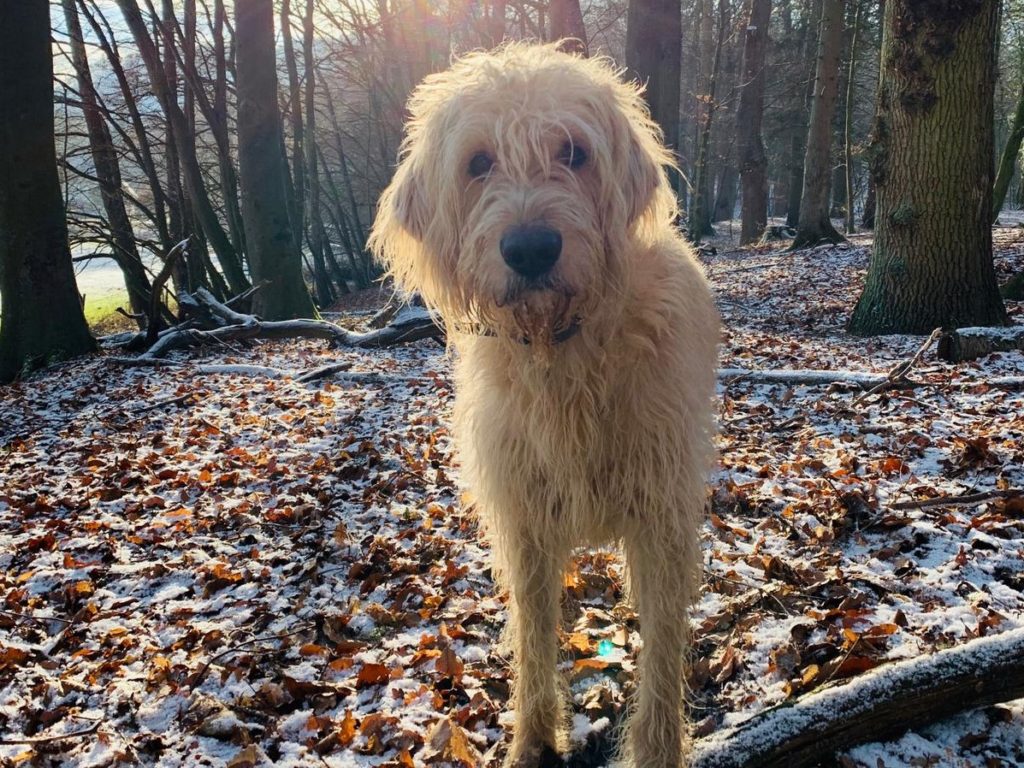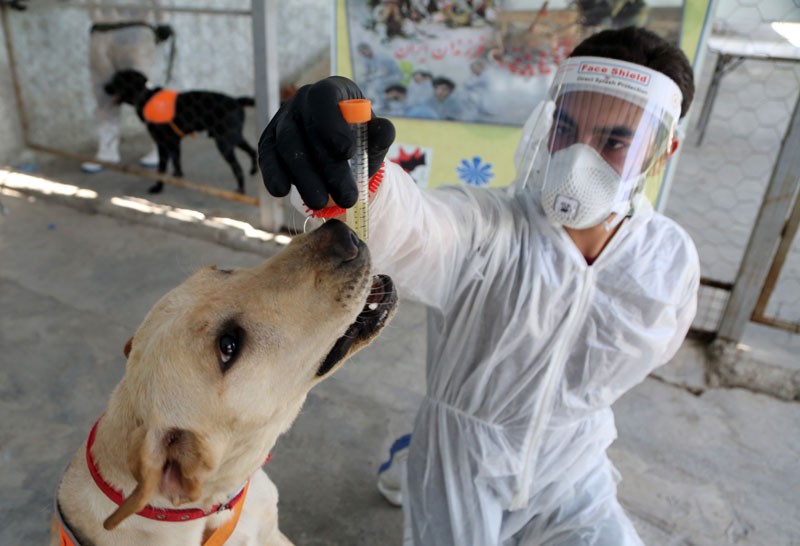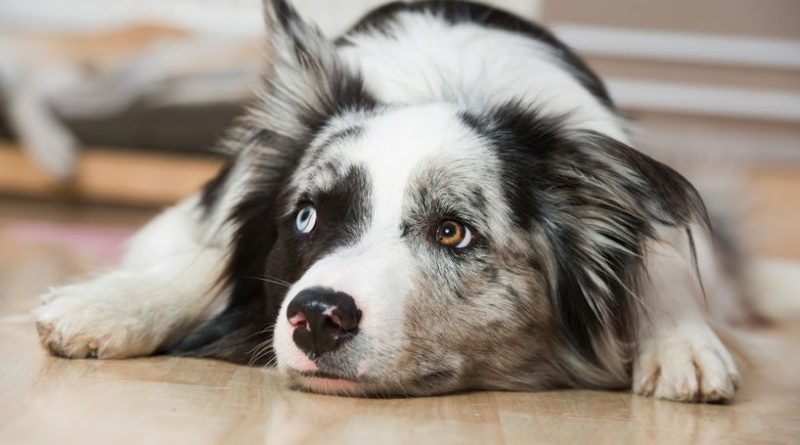Dogs – underestimated super-scenters
Dogs are often described as the best friend of humans. Many people own a dog whom they would describe as a companion along their way or even a family member. However, dogs have more qualities than just accompanying us or than brightening our days. When trained accordingly, dogs are able to carry out a variety of tasks that facilitate the lives of many fellow human beings. Furthermore, dogs and especially their outstanding smelling-ability proves to be helpful in a lot of different fields ranging from man-trailing to smelling cancer. In the light of the current Coronavirus pandemic, their scenting ability can prove to be helpful as well.
Guiding dogs for blind or deaf people are probably the most-known assistant dogs. However, guidance is not the only assistance that dogs can provide to humans. There are also dogs that have the ability to detect that their owners are about to go into diabetic coma or that they are going to have an epileptic fit. This is possible due to dogs’ extraordinary scenting ability: Dogs have around 300 million olfactory receptors, while we humans only have around 5-6 million. The part of a dog’s brain which is responsible for smelling is proportionally 40-times bigger than ours. But that is not the only thing that distinguishes dogs’ scenting abilities from ours. Due to their noses’ anatomy dogs, unlike humans, can split the inhaled air into smelling and breathing. Moreover, when we exhale, we use the same way through which we took the air in, while dogs on the other hand exhale through slits on the side of their noses. [1]
Therefore, dogs are also more frequently used in medicine. Besides their above-mentioned skill they also possess the ability to smell diseases such as cancer or Parkinson. However, dogs cannot smell cancer in general, but they are rather trained to detect special kinds such as breast or bowel cancer. This means that they cannot be used universally as early detection of cancer.[2] Furthermore, it is not yet completely known what exactly dogs smell when detecting a disease, but apparently it is something that is already noticeable before a patient is actually getting the it.[3]

We can also make use of dogs’ scenting abilities when dealing with the great problem of this decade, namely Covid-19. Finnish scientists found out that dogs can detect Covid-19 infections by people’s urine after they memorized the smell of it.[4] A similar study was carried out in Germany which tested if dogs can detect Covid-19 in respiratory secretions of hospitalized patients.[5] The dogs indeed managed to do that with a passing rate of 94%. Unfortunately, this study included only very small number of samples and was thus not really suitable for testing asymptomatic persons.[6]
Nonetheless, a French-Lebanese study from December 2020 tested whether dogs are able to detect Covid-19 by the smell of people’s sweat. They found that dogs have the ability to detect an asymptomatic corona-infection with a success rate from 76-100% which is actually similar to the common corona-PCR-tests available.[7] Of course, these studies have to be developed further and especially the sample sizes have to be increased by a lot to see how accurate the results actually are. Still, the possibility of corona-dogs is promising, also considering that dogs’ services are already used regularly in other cases, such as the detection of drugs.
So, what can we take from that? Can a simple dog-sniff compensate for a rather uncomfortable nasal swab? The heads-up: probably not. However, it is possible that dogs can work at locations where the possibility of infections are rather high, for example at airports and festivals. If a dog someone as corona-positive that person can then go to a test centre to get a confirmation. Furthermore, dogs’ scenting ability could be used to check whether a location is corona-free.[8] Unfortunately, research about dogs’ smelling abilities in the medical area is still at its inception. Most dogs and their handlers are working voluntarily, and doctors or health insurances see the whole practice – not only regarding corona, but also towards other diseases – rather sceptically.
Nevertheless, the corona-dogs are already used at some locations such as the airport of Santiago de Chile and Helsinki. Also, sports teams, such as the Miami Heats, try to employ this new technique , so that the public can watch their games again. In general, it can be established that the dogs pose a viable solution for bigger events or crowded locations to detect asymptomatic persons. By the way, until now scientists state that the risk of infection for dogs is rather low which means that they can be used without suffering from that. Plus, there is another positive point about corona-dogs: every time there is a test screening, you can see cute dogs!

Credits: Nature.com
[1] https://www.pbs.org/wgbh/nova/article/dogs-sense-of-smell/
[2] https://futalis.de/hunderatgeber/haltung/alltag-mit-hund/hunde-riechen-krankheiten
[3] https://www.dw.com/de/hunde-k%C3%B6nnen-covid-19-erschn%C3%BCffeln/a-53533702#:~:text=Bestimmte%20Krankheiten%20scheinen%20eine%20spezifische,Wahrscheinlichkeit%20von%2093%20Prozent%20erkennen., https://www.nationalgeographic.de/wissenschaft/2019/04/lebensretter-wie-hunde-krebs-und-diabetes-erschnueffeln
[4] https://www.dw.com/de/hunde-k%C3%B6nnen-covid-19-erschn%C3%BCffeln/a-53533702#:~:text=Bestimmte%20Krankheiten%20scheinen%20eine%20spezifische,Wahrscheinlichkeit%20von%2093%20Prozent%20erkennen.
[5] https://bmcinfectdis.biomedcentral.com/articles/10.1186/s12879-020-05281-3
[6] https://www.nature.com/articles/d41586-020-03149-9
[7] https://journals.plos.org/plosone/article?id=10.1371/journal.pone.0243122 , https://www.theguardian.com/sport/2021/jan/29/covid-sniffing-dogs-super-bowl-miami-heat-sports-stadiums
[8] https://www.dw.com/de/hunde-k%C3%B6nnen-covid-19-erschn%C3%BCffeln/a-53533702#:~:text=Bestimmte%20Krankheiten%20scheinen%20eine%20spezifische,Wahrscheinlichkeit%20von%2093%20Prozent%20erkennen.

